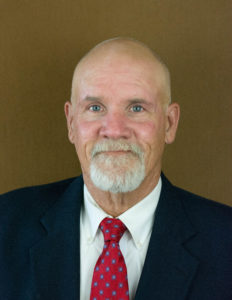Let’s launch into our subject by posing a question: How is today’s workforce different from that of any other generation in our industry? Back in the day, you just did exactly as you were told, without deviation. Whether you were a person new to the industry or a seasoned veteran, you understood that no explanation was necessary when the boss, pusher, or owner gave instruction on what was expected. And the expectation was to be executed without any murmuring or any copping of an attitude. Yet today, as you well know, the younger generation is interested in the “why.” Additionally, there is a moderately new expectation of being treated with respect. Back in the day, respect was earned by action, by the ability to get the job done. Performance was expected, with little or no regard for the manner in which the order was given, nor how it was received. Thank goodness Aretha Franklin spelled it out for us, r-e-s-p-e-c-t.
What I have found out in the last few years is that regardless of experience or inexperience, seasoned veterans of the oilfield as well as rookies give respect and expect respect. This is not a bad thing. No longer are the days when you have to earn respect. There is an ever present desire/need for respect to be a given. Although this topic may be one for HR, it is critical for the field of safety as well. Unless you have an army of HR personnel to carry the ball for you, you’ll find yourself tasked with this issue, and confronted with it as well. Now, you might find that you can preach, demand, and/or demean people into submission regarding safety. But soon as you are not around, the personnel will automatically revert to just doing the job and falling into their regular habits. Safety is not even remotely on their mind. Getting the job done as quickly as they can is what is on their mind.
There was one company that I worked for that, on the first day of the safety meeting, there were signs all around the room that said “Impeach Safety.”
The message was clear—safety was not a subject of which they were fond. I immediately led off by saying, “I automatically give you respect for the job you do, and I am willing to earn your respect for the job I do. In the process, I will shadow you on your job and take notes of opportunities to make your job safer. I will be transparent and you can see my notes anytime.” There would not be write-ups involved. I rode with them, asked questions, and made notes. I then covered the notes with them and asked, “What improvements can we make to make your job easier and safer?”
Initially, they were reluctant to answer, suspecting the perceived motive. After taking the time to listen, I would ask them their opinion of the findings. Then I followed up with it. They are not used to someone listening to their input, except on an accident investigation. They bought into the process and started looking for safety improvements—which ultimately saved the company money and ultimately made the company safer.
When it comes down to it, I base my processes on how I wanted to give input when I was in operations. After numerous years in safety, I found that the largest obstacle was overcoming other safety personnel—that is, overcoming their ideas. And here I speak of only some safety personnel, not all.
As with any other process, achieving safety requires sticking to the philosophy of soliciting input to make the job safer and giving it time to work.
It is my desire to challenge age-old processes and find ways to make safety meaningful. All that it takes is being respectful. What comes in return is respect. As with anything else, you cannot cookie-cut processes and make them fit into place. It takes genuine research, data, and perseverance to arrive at a meaningful solution.
As always, it is not how many hits in baseball that win games. It is how many times you reach home safely that counts.
Dusty Roach is a safety professional based in Midland. He is also a public speaker on subjects of leadership and safety, and he maintains a personal website at dustyroach.com.











